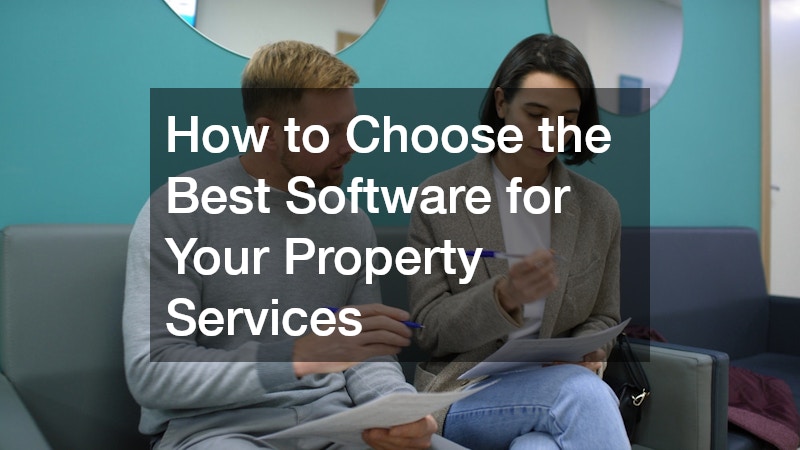
Choosing the right software for property services is pivotal for optimizing operations and enhancing overall business efficiency. A strategically selected software boosts productivity, reduces costs, and positions the company for long-term success in a competitive market.
When selecting software for property services, look for productivity-enhancing features such as scheduling tools and automation capabilities. These features not only streamline operations but also save time by automating repetitive tasks, thus allowing you to focus on more strategic activities.
Video Source
Scheduling tools are particularly beneficial as they facilitate efficient management of property maintenance and tenant requests. Automation capabilities can significantly reduce the human error factor, enhancing accuracy and reliability in service delivery. For example, automated notifications and reminders ensure that no task is overlooked, enhancing tenant satisfaction. By implementing such features, you can enhance client relations and overall operational efficiency.
Robust data management and reporting functions are crucial for making informed decisions in property services. These features enable you to track key metrics and performance indicators, giving you a comprehensive view of your operations. With powerful reporting tools, you can easily generate reports on occupancy rates, financial performance, and maintenance expenses. These insights allow for more precise forecasting and strategic planning, ultimately contributing to improved profitability. Informed decision-making facilitated by accurate data management can significantly reduce risks and enhance strategic initiatives. Thus, investing in software with strong data management capabilities is essential for sustaining business growth and success.
Evaluating the cost-effectiveness of property service software begins with understanding its Total Cost of Ownership (TCO). TCO encompasses all costs associated with the software, including initial purchase, ongoing maintenance, and employee training. By analyzing these costs, you can better assess the long-term financial implications of acquiring the software. This comprehensive perspective helps in avoiding unexpected expenses that could impact your budget and cash flow. Ensuring that the TCO aligns with your budget and financial strategy is crucial for maximizing your investment. Carefully evaluating these facets can prevent costly missteps and ensure that the software contributes positively to your financial health.
Comparing ROI forecasts is critical in assessing the value a software solution brings to your property services business. By evaluating potential returns, you can better gauge which software options will yield the most beneficial outcomes. To forecast ROI accurately, consider factors like time saved, error reduction, and increased tenant satisfaction. These benefits often translate to financial returns in terms of cost savings and revenue growth. Using detailed ROI comparisons, you can objectively prioritize software that promises the highest value relative to your investment. This ensures that your choice of technology is aligned with your business goals and future expansion plans.
Scalability is a vital consideration when selecting property service software, particularly for growing businesses. Your chosen software should easily handle an increasing number of properties without compromising performance. Opt for solutions that offer seamless expansion options such as modular upgrades and additional feature integration. This flexibility ensures that your software remains relevant as your business and client base grow. Scalable software enables your operations to expand and contract according to market demands without the need for frequent overhauls. It saves you from the costs associated with transitioning to entirely new systems as your business evolves.
Customizability is another important factor, allowing you to tailor the software to specific business needs. By leveraging customizable features, you can create bespoke solutions that address your unique operational challenges. This flexibility not only improves functionality but also enhances user experience by accommodating individual user preferences. Customization options can also be vital for maintaining branding consistency and integrating existing business processes. A software solution that offers extensive customization can adapt to industry changes and evolving customer expectations. This adaptability ensures that your software investment remains valuable over time, supporting continuous innovation and improvement.
In conclusion, choosing the right property services software is a strategic decision that impacts efficiency, scalability, and profitability. By understanding key features, evaluating cost-effectiveness, and considering scalability and flexibility, you can select a solution that supports both current operations and future growth. Thoroughly evaluating these aspects ensures that your software choice aligns with your strategic objectives and resource allocations. As the property services industry evolves, having a robust and adaptable software solution will be a key asset in maintaining competitive advantage.
